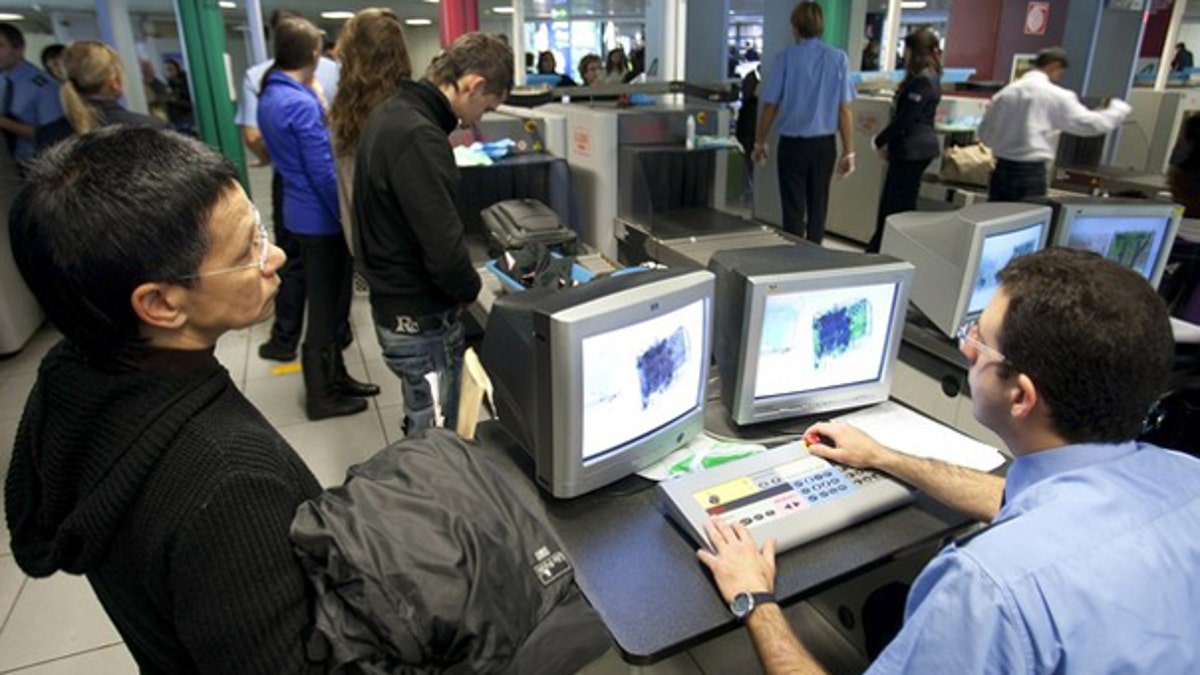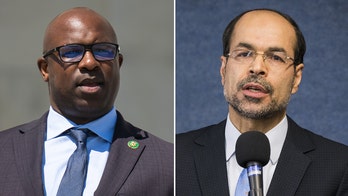
Security officials inspect luggage at the Fiumicino international airport in Rome Jan. 5. (Reuters Photo)
The Obama administration's decision to crank up airport security for passengers traveling to the U.S. from 14 nations has triggered a backlash of complaints from Muslim and privacy groups who say President Obama's response to terror threats amounts to little more than racial profiling.
But defenders of the policy say it's a carefully targeted way of zeroing in on those travelers most likely to pose a threat, and that hurt feelings shouldn't really matter after the United States narrowly averted, by sheer luck, a deadly midair bombing on an airliner heading to Detroit on Christmas Day.
The Transportation Security Administration will have to deal with these opposing arguments in the months ahead as it continues to examine and adjust its screening policies and figure out the best way to balance security and privacy.
"I suspect that these rules will be ameliorated in the near future, and after a couple months we'll probably back away" and strike a compromise, said Jim Harper, a member of a Department of Homeland Security privacy committee and scholar with the Cato Institute. He noted that some countries have objected to or shown reluctance toward implementing the full measure of enhanced screening techniques for passengers traveling through and from the selected 14 nations. He criticized the TSA measures as too broad, but he said he's surprised so many people are resisting technologies like full-body scanners over privacy concerns.
The American Civil Liberties Union on Tuesday criticized practically every initiative the Obama administration has taken in the wake of the failed attack on a Northwest Airlines flight. The ACLU scolded Obama for announcing he would suspend the transfer of Guantanamo detainees to Yemen, for suggesting the no-fly list should be expanded and for subjecting passengers from 14 nations to additional screening.
"Using national origin or religion as proxies for suspicion is nothing less than racial profiling," the organization said in a statement.
Nearly all of the 14 countries are Muslim nations. The list includes Yemen, where suspect Umar Farouk Abdulmutallab traveled in 2009 and may have met with a radical cleric, and Nigeria, the suspect's homeland.
"It comes pretty close to across-the-board profiling of Muslim travelers," said Ibrahim Hooper, spokesman for the Council on American-Islamic Relations. "Usually after these kinds of incidents you see some knee-jerk reaction. ... It's often, 'Let's let Muslims pay the price for this one because we can't think of anything else to do.'"
CAIR released a statement Wednesday urging the TSA to clarify whether Muslim women wearing hijabs will have to undergo additional screening, claiming a Muslim woman who underwent a pat-down at a D.C. airport was told that anyone wearing a head scarf would face enhanced screening.
But given that almost all terror plots these days are driven by Islamic jihadist beliefs, proponents of the extra layers of security say profiling, done carefully, is not necessarily a bad thing.
Asa Hutchinson, former Homeland Security undersecretary, said it's important to draw a line between profiling based on race and profiling based on national origin.
"If you're talking about profiling based upon geographic origins or where they're flying from, absolutely," he said. "If you're talking about simply because they're part of a particular racial origin, absolutely not. ... You have to be smart about who you're inspecting."
Frank Cilluffo, former special assistant for homeland security under President George W. Bush, said airports need to be "profiling" based on behavior even though it's become a "dirty word." He cited a slew of signs that would have set off alarm bells about Abdulmutallab if security officials had profiled him better.
"We should have seen bells ringing. When you have an individual paying cash for a one-way ticket, no luggage - that should have been bing bing bing bing bing," he said. "It shouldn't be the first line of defense, but rather the last line of defense."
The first line of defense, most agree, is better intelligence.
Obama made clear in remarks Tuesday that he expects the U.S. intelligence community to do a much better job connecting the dots regarding threats posed by potential terror suspects -- something he said agencies failed to do before the Christmas Day plot.
"Just as Al Qaeda and its allies are constantly evolving and adapting their efforts to strike us, we have to constantly adapt and evolve to defeat them because as we saw on Christmas, the margin for error is slim and the consequences of failure can be catastrophic," Obama said.




